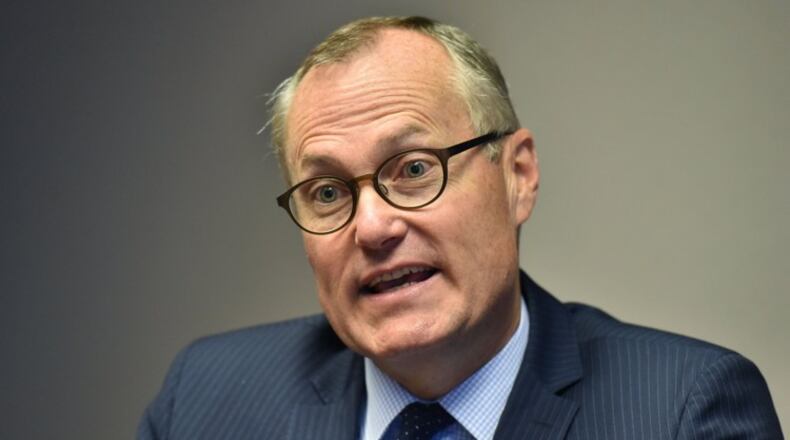Casey Cagle was right, and also very very wrong.
Georgia’s longtime lieutenant governor, now running for governor, knew that a bill to expand private scholarships was bad legislation that would hurt Georgia and its public school system. House Bill 217 would almost double a poorly designed tax subsidy handed out to private-school students, most of them from middle-class and upper-class families, and would have the long-term impact and even intent of undermining public education.
“Is it bad public policy?” Cagle told another politician in what he thought to be a private conversation. “Between you and me, it is. I can tell you how it is a thousand different ways.”
But that conversation wasn’t private. It was being secretly taped. And as Cagle went on to explain why he supported the legislation despite knowing it was terrible, every word he uttered was doing enormous damage to his political ambitions and reputation.
“It ain’t about public policy,” Cagle says in the tape. “It’s about (expletive) politics. There’s a group that was getting ready to put $3 million behind Hunter Hill,” one of Cagle’s competitors in the GOP gubernatorial primary, if Cagle blocked the bill’s passage. By pushing the bill into law, Cagle hoped to ensure that expenditure never got made, and apparently the tactic succeeded.
There’s no defense for that kind of action, no explanation or justification that can mitigate it. Basically, Cagle admitted to selling his influence and power. He chose his personal political ambitions over the well-being of Georgia, and by doing so he sabotaged both.
Even before this public relations disaster, Cagle faced a tough July runoff against Secretary of State Brian Kemp, who may now ride this mule right into the GOP nomination and then into the governor’s office. That’s trouble, because based on Kemp’s record in office and his campaign rhetoric, he would be the kind of incompetent, divisive right-wing governor that has driven off business and done considerable damage in other Southern states, and that Georgia has avoided until now.
However, there’s a deeper and more important scandal playing out here than Cagle’s cynical self-dealing. This is not just a failure of an individual politician, it is an indictment of the entire political system. It’s a case study in how even the threat of massive, largely unregulated campaign expenditures can distort policy and corrupt politicians.
Personal integrity is a great thing; we all want and expect personal integrity in those who aspire to lead us. But as we’ve seen, if you’re going to count on personal integrity as a safeguard for the public good in a system when the incentives are so loaded in the other direction, you’re being naive and that naivete is going to have a high price. To borrow a fateful line, it’s bad public policy and I can tell you how a thousand different ways.
About the Author
The Latest
Featured



